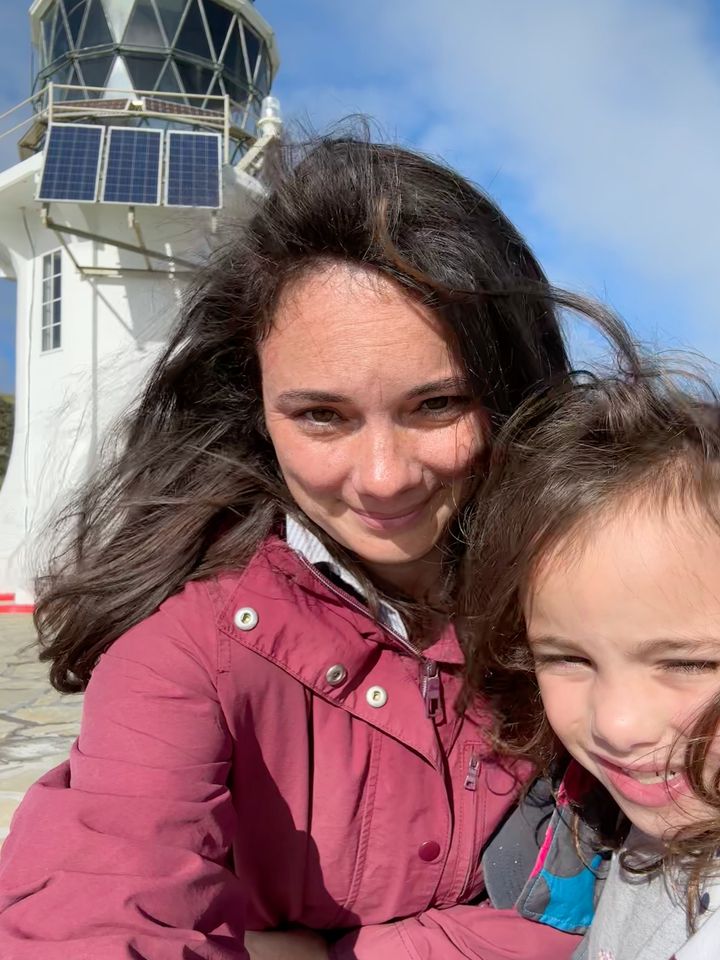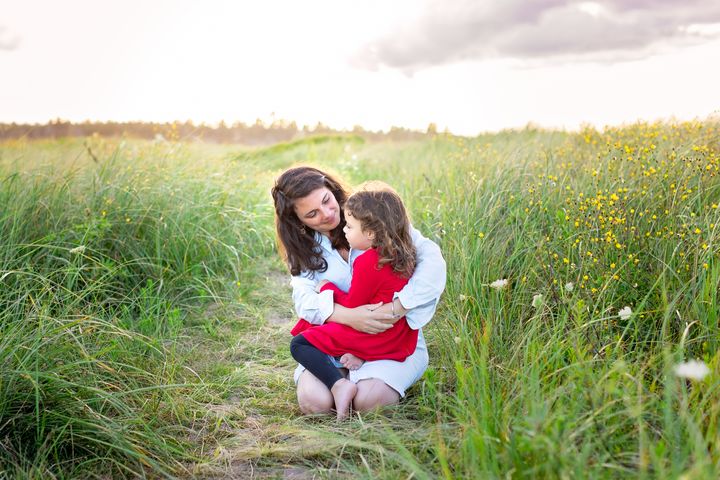News
I Spend Each Summer Out Of The U.S. With My Child, And This Is The Biggest Difference
Bunches of apples clatter to the ground as giggles fill the air. I anxiously look around at the other parties seated nearby in the garden cafe, wondering if anyone is upset that my child is being loud. All I see are smiles. We’re in a small Lake District town in northwest England, our home for the summer, and my child and two friends she just made are laughing, jumping out of the trees on the property and running around to see if there are flowers to pick before going back to the trees to climb. I take a cue from the other diners and stop worrying if my child is being too boisterous or rambunctious and instead focus on the cafe menu and what I should order for breakfast.
A scene like this seems impossible in the U.S. When I was pregnant and thinking about what I wanted motherhood to look like, I started to set plans in motion for being able to spend at least a month overseas with my child. A flexible job as a freelance writer and living in a sought-after destination made it possible to rent out our home and spend the summer settling into a new place. I knew I wanted her to experience different cultures and customs. I wanted to explore with my child and see the world through her eyes, but I wasn’t expecting to feel so much less anxiety parenting overseas.
“Parents often find themselves more at ease when traveling to family-oriented cultures like those in Sweden, Italy, Canada and New Zealand,” Kanchi Wijesekera, a clinical psychologist and the founder and director of Milika Center for Therapy & Resilience, told HuffPost. “These places tend to prioritize family and community, allowing parents to feel supported and less pressured to make their children conform to adult-like behavior.”
Courtesy of Bridget Shirvell
Though COVID-19 delayed some of my initial plans, we’ve now been to England, Nova Scotia and New Zealand, and the thing that I’ve been struck by the most is how so many of the places we’ve been integrate families into everyday life.
At restaurants, we’ve found more than plastic-wrapped crayons with a paper kids’ menu; there are playgrounds and outdoor places with areas to relax or play cornhole, four-in-a-row or hopscotch. Public spaces are geared toward community, not just kid-friendly or adult spaces. But more than that, I’ve also found people wanting to engage with my child. My daughter has had conversations with brick masons on a train, learned about a dog named Spot from a couple walking in a park and made friends with countless other children.
As Erika Thomas, a Miami mom who has taken her two children to Europe and South America, said: “Everywhere we have gone, it’s very apparent that children are considered in day-to-day life. More playgrounds, more activities, and even restaurants have things for kids to do, not just color at the table. For example, in Colombia, shopping malls have ball pits and trampolines, and restaurants have face painting, cookie making, art projects and more.”
In the U.S., it feels like we have a cultural expectation that children should either occupy kids’ spaces or behave quietly and politely, almost like mini-adults, which I’ve always found odd, as it’s not like Americans have a reputation for being quiet and polite.
“As an American, I feel that I need to apologize for a child who might be getting too loud or too antsy in a restaurant. If I do that in South Africa, the immediate response is, ‘Well, yeah, they’re a kid!’ People seem way more patient and understanding of kids in general. It seems like a society where families are integrated into everyday life rather than keeping them hidden from other people,” said New York-based mom of two Ellen James Mbuqe, who regularly travels with her husband and children to visit family in South Africa.
In contrast, when children exhibit typical behaviors such as being noisy, active or having tantrums in the U.S., it’s not uncommon for parents to encounter judgmental looks or comments, intensifying feelings of anxiety and shame.
“As someone who has worked closely with clients who are mothers and is a mother of two daughters myself, I understand firsthand the discomfort of receiving disapproving looks and being shushed. These concerns among parents are completely valid. In fact, an Expedia survey revealed that Americans rank ‘inattentive parents’ as the second-most irritating breach of airplane etiquette, just behind ‘seat-kicking,’” Wijesekera said.

Courtesy of Bridget Shirvell
Of course, cultures and cultural norms are different everywhere, and part of traveling with my child is getting the opportunity for us both to experience that. We’ve survived without a dryer and online shopping, and doing so allows us both to practice patience, think ahead and solve problems. And we’ve learned so many other things about the cost of food and the availability of certain types — so far we’ve never stepped into a non-U.S. supermarket with as many bread choices as at home, although the English supermarkets had vast biscuit choices. We’ve also been welcomed into the homes of people we met at the park or playground, and I’ve accepted the invite without feeling the need to ask if there are guns in the household or any of the other fraught questions that I often find myself asking or answering when setting up playdates in the U.S.
Not that the places we’ve traveled to don’t have their own issues and challenges, but when we are someplace where the focus is on community rather than individuals, I often find myself feeling safer, and I’ve seen my child become confident in her interactions with adults and children alike.
I’m trying to take that feeling home with us. In addition to being more conscious of our consumption, parenting in other countries has made me realize I don’t need to apologize for my child existing in public and shared spaces. It’s also made me focus on intentionally creating community at home.
“We are more inclined to have friends over on a school night — ours and theirs — let the kids play until sunset and add a social factor to any evening of the week rather than just over the weekend,” Thomas said, adding that traveling with her kids overseas has also made her more focused on not always rushing from one thing to the next and also more comfortable taking her children to places that are not always seen as child-friendly, such as museums.
As we get ready to return from a summer away, we’re making plans for weekday evening walks with friends to get ice cream, trying to build in moments where we slow down.
Read more

